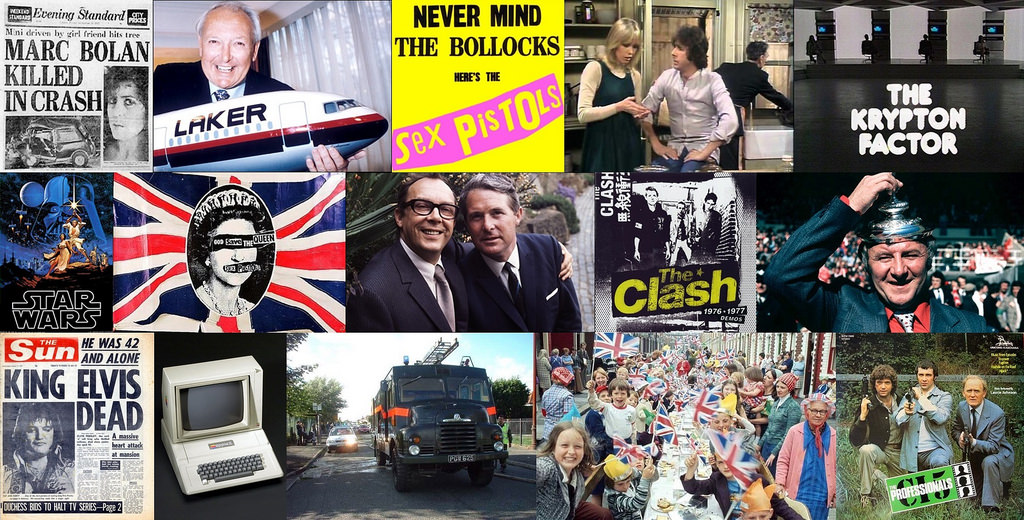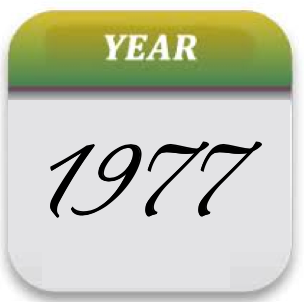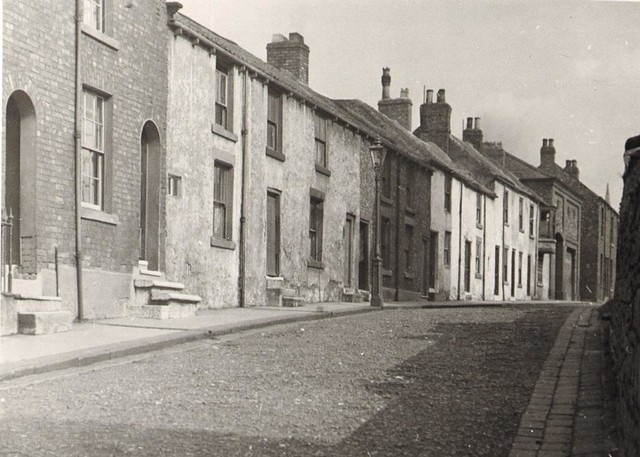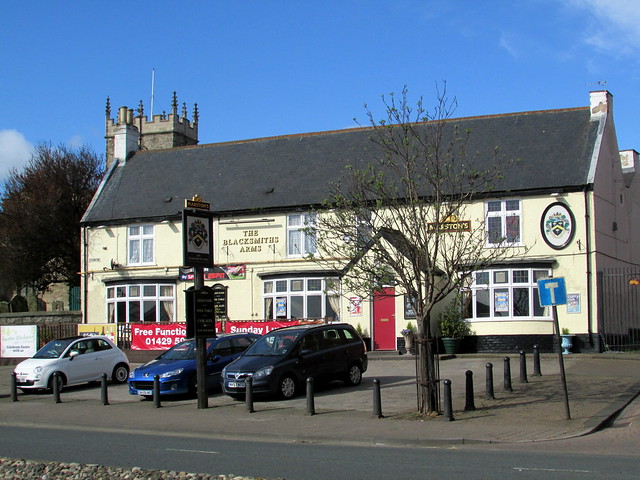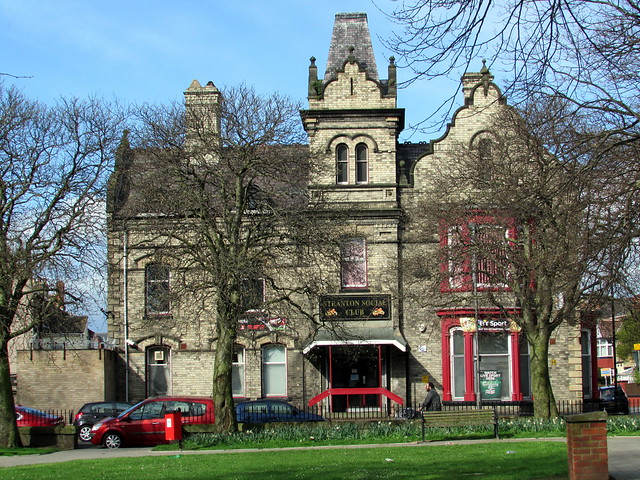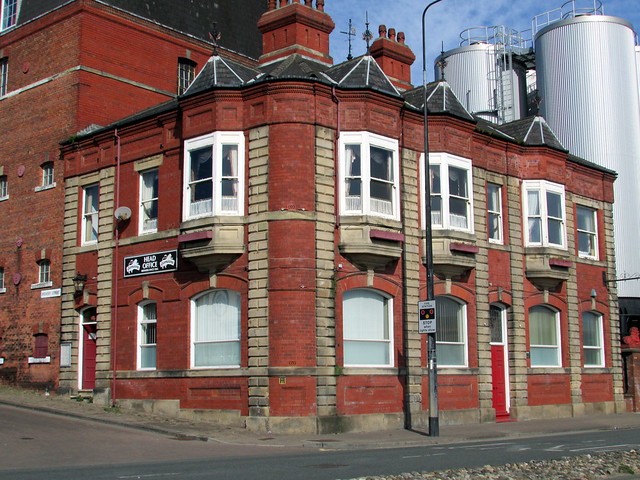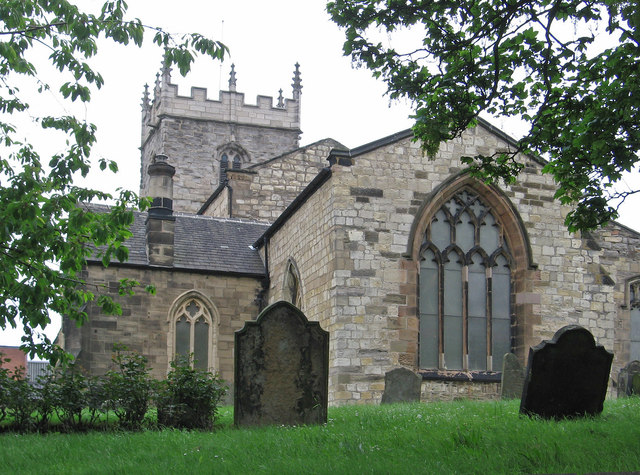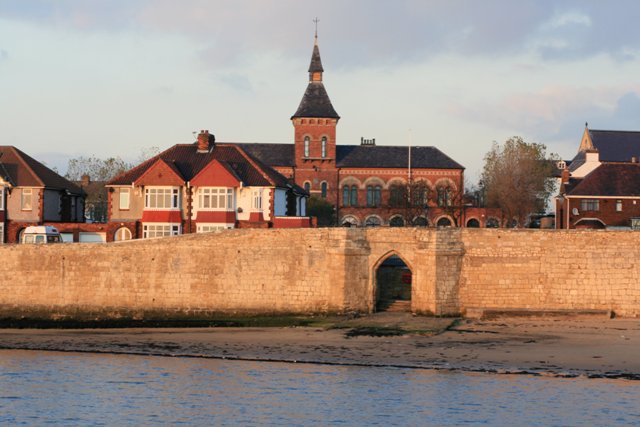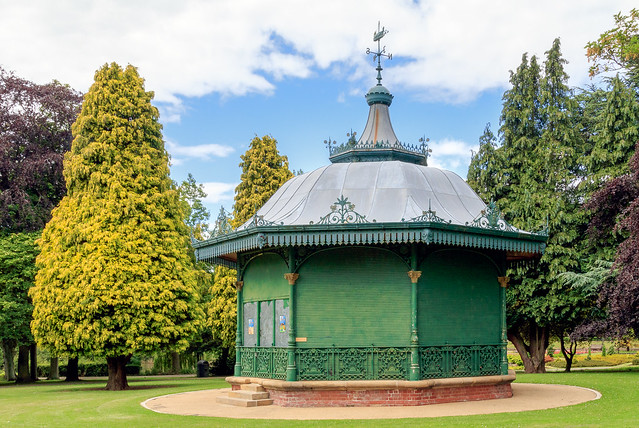That Was the Year That Was - 1977

-
Description
1977 The first Apple Computer goes on sale. Quebec adopts French as the official language. Jimmy Carter is elected as the President of United States and the first oil flows through the Trans Alaskan Oil Pipeline. The precursor to the GPS system in use today is started by US Department of defense. Elvis Presley Dies from a heart attack aged 42. British Public sector trade unions including Firefighters strike for wage increases over the 10% ceiling imposed by the British government. The first ever Quadraphonic concert in London by Pink Floyd. The first commercial flight Concord London to New York. NASA space shuttle makes its first test flight off the back of a jetliner. Voyager I and Voyager II are launched unmanned to explore the outer solar system. When Britain's fire crews walked out on national strike, members of the public were advised to take matters into their own hands. Although the armed services, with their so-called "Green Goddess" fire engines, were drafted in, they were seen by many as a last line of defence. As the strike took hold in the encroaching winter of November 1977, people were encouraged to keep buckets of sand and water at home. And at a time when many still relied on open fires for heating, householders were advised to have their chimneys cleaned. The London Fire Brigade issued its own 11-point safety guide, advising checking for smouldering cigarettes and leaving only essential electrical appliances like fridges plugged in. The strike began on 14 November and lasted for nine weeks, running through to the New Year. At the time fire fighters worked a basic 48-hour week, for which they were paid an average of £71.10, which amounted to £3,700 a year. The fire fighters finally agreed to settle for a 10% pay rise with guarantees of future increases and they went back to work on 16 January. Silver Jubilee of 1977 The Queen’s first biggie was the Silver Jubilee of 1977. The two previous monarchs had not reached this milestone; the Queen’s father King George VI died after only 15 years and two months on the throne and her uncle Edward VIII did not even make it to a year. Britain in 1977 had recently experienced power cuts, a forerunner of the Winter of Discontent. No wonder the country was in the mood for a party. But celebrations were different then. Children’s parties used to consist of jelly and ice-cream and Pass The Parcel; now they want a cabaret show and expensive goody bags. Similarly, the Diamond Jubilee involves a cast of thousands and many hours of airtime each day over the better part of a week. The Silver Jubilee coverage consisted of less than seven hours in total, mostly on Jubilee day itself, with not a single celebrity in sight – unless you count Margot (actress Penelope Keith) from The Good Life presenting Jubilee Jackanory. The Royal Family was smaller 35 years ago so the Queen had to carry out all her own Jubilee engagements. She went on a royal progress through Britain, much of it by car, so that she could be seen by as many people as possible, even if time did not allow for a walkabout in every town. Late in Jubilee year, a newspaper published a picture of her looking weary, with the comment “Well she IS 51.” And now here she is doing just as much at 86. The tide was already turning in 1977 as that was the first year when foreign cars outsold British ones. In Silver Jubilee year leisure for most people meant watching your newly-acquired (but in many cases rented) colour TV. There were only three channels – BBC1, BBC2 and ITV – but somehow there was always something worth watching. The Professionals was a favourite, starring Martin Shaw (sporting a bubble perm) and Lewis Collins and their Ford Capri, as was The New Avengers, a revival of the Sixties series, starring Joanna Lumley and her Purdey hairdo, a modern take on the pudding bowl. Roots, the ground-breaking mini-series tracing a black man’s family history from capture in West Africa, was broadcast in April 1977. Morecambe and Wise ruled the comedy roost. A staggering 28million – half the population at the time – watched their 1977 Christmas show, a figure unlikely to be exceeded. Sadly the same might be said of Britain’s Wimbledon hopes. No one has really come close since Virginia Wade won in Silver Jubilee year in front of the Queen. Before videos and DVDs, people still went to the cinema and in December 1977 everyone wanted to see Star Wars, a new kind of fantasy film about “a galaxy far, far away”, that spawned the genre that now includes The Lord Of The Rings and even Harry Potter. Meanwhile the pop world was fragmenting. On one side there was glam rock and disco; on the other, punk. The Sex Pistols’ snarling version of God Save The Queen was released in Jubilee week and their manager Malcolm McLaren said it was proof that there were “barbarians at the gate”. They never made it through. The popularity of the Royal Family surged in Silver Jubilee year just as it had in Diamond Jubilee year. We are not the same country we were in 1977. But perhaps we are not entirely different either. Cost of Living In 1977, 56 per cent of Britons owned one car or more, 74 per cent owned a washing machine. 50 per cent of people had central heating in their homes. Computers, DVD and CD players were non-existent. A couple with two children had an average net income of £363 a week. A single pensioner received an income of £180 a week. We spent 25 per cent of our income on food. We spent 10 per cent of our income on leisure and holidays. In 1977, 93 per cent of men aged 25-54 were in work. However female employment in the same age group was 59 per cent. 26 per cent of jobs were in manufacturing. Despite the vast majority of adults thinking that things were better in the 1970s, figures from that era suggest that life was not easy. 1977: Star Wars fever hits Britain Thousands of people were flocking to cinemas in the UK to watch the long-awaited blockbuster, Star Wars - a movie which is already setting US box offices alight. Bracing the cold weather, young and old queued from 0700 GMT in London at the Dominion, and Leicester Square cinemas, to snatch up non-reserved tickets which were otherwise booked until March. Star Wars, which was first released in America seven months ago, has taken audiences by storm and outstripped last year's blockbuster Jaws to gross $156m (£108m) at the box office. Carrie Fisher, Sir Alec Guiness and little known Harrison Ford star in this fairytale set in space. Produced by Gary Kurtz, written and directed by George Lucas who directed American Graffitti, the U-classified sci-fi film is a classic epic of good versus evil. It has enthralled audiences under a dazzle of special effects with wizards, heroes, monsters in "a galaxy far, far away". The 900 people involved in the film included giants, dwarfs, artists and the man who built machines for James Bond. Many of the optical special effects were developed in California by Industrial Light and Magic, a George Lucas company. The on-stage special effects were put together at Elstree studios in Britain. Filming took the cast to Tunisia, Death Valley California, Guatemala and the EMI soundstage at Elstree. The build-up and hype has led to store wars over Star Wars with products including T-shirts, sweets, jig-saw puzzle, watches and food to name but a few. Mr Lucas has published a paperback version and Marvel comics have produced a special edition to meet the thirst for Star Wars' merchandise. But for those queuing today nothing will satisfy them but a chance to see the film itself - easy targets for touts trying to sell £2.20 tickets for £30. 1977 The Murders of the Yorkshire Ripper 5 February – 28-year-old homeless woman Irene Richardson is murdered in Leeds, at almost the exact location where prostitute Marcella Claxton was badly injured nine months ago. Police believe that this murder and attempted murder may be connected, along with the murders of Wilma McCann, Emily Jackson and the attempted murders of at least three other women. Near the body, the police discovered an important clue. The killer had driven his car onto the soft ground of Soldiers Field. The police were able to determine the tire marks as being two India Autoway tires, a Pneumant, and an Esso 110, all cross-ply. With a rear track width of between 4' 1 1/2" and 4' 2 1/2", the number of vehicles that it could apply to was twenty-six, including Ford Corsairs. A staggering 100,000 vehicles in West Yorkshire would have to be checked, and before the killer changed any of his tires. 23 April - Prostitute Patricia Atkinson is murdered in Bradford; she is believed to be the fourth woman to die at the hands of the mysterious Yorkshire Ripper. Patricia Atkinson, aged 32, a prostitute, was the second murder victim in 1977 by Peter Sutcliffe. To the police, the Leeds killer had now expanded his territory to include Bradford. A blood sample showed that Patricia Atkinson had consumed about twenty measures of spirits. The police also found a bloody foot print on a bottom bed sheet from a size seven Dunlop Warwick wellington boot, which matched the foot prints found at the Emily Jackson murder scene. It was clear, from this, and from the injuries sustained, that the Yorkshire Ripper had now expanded his territory to include Bradford. As well, for what would be the only time, he had committed a murder indoors. 26 June – 16-year-old shop assistant Jayne McDonald is found battered and stabbed to death in Chapeltown, Leeds; police believe she is the fifth person to be murdered by the Yorkshire Ripper. About 30 yards into Reginald Street, near an adventure playground, Sutcliffe struck Jayne MacDonald with the hammer on the back of the head. After she fell down, he then dragged her, face down, about 20 yards into the corner of the play area. Her shoes made a "horrible scraping noise" along the ground as he dragged her. He hit her again with the hammer and then pulled her clothes up and stabbed her several times in the chest and in the back. The slaying of a young girl, not connected to the prostitute trade, an "innocent", brought not only national attention to the case, and outrage from the public not seen in the earlier murder cases, but also caused Chief Constable Ronald Gregory to appoint his most senior detective, Assistant Chief Constable George Oldfield to be in overall charge of the escalating Ripper murder investigations. Peter Sutcliffe claims to have been shocked when he saw the newspaper headlines that Jayne MacDonald had not been a prostitute as he had assumed. Jayne's father, Wilf MacDonald, a former railwayman, was to die two years after her murder, never having recovered from the ordeal of her murder. 10 July – Bradford woman Maureen Long, 42 is injured in an attack believed to have been committed by the Yorkshire Ripper in the West Yorkshire city. Maureen Long had remembered going to the cloak room at the club, and walking towards the city centre. She also remembered his white Ford with the black roof. But the description of her attacker that she was able to provide - white, well-built man, aged 36 or 37, about 6ft. 1in. tall, puffy cheeks, thickish eyebrows, collar-length wiry blond hair, with noticeably large hands - relieved Peter Sutcliffe of some of his worries about being caught. His only concern was the description of his car by the nightwatchman. In August he sold the white Ford Corsair to Ronnie Barker. When it broke down, Sutcliffe reluctantly took it back, stripped the car down, and redistributed the spare parts around the replacement car he had bought in September 1977, a red Ford Corsair. 10 October – Missing 20-year-old prostitute Jean Jordan is found dead in Chorlton, Manchester, nine days after she was last seen alive. Police believe that the Yorkshire Ripper may have killed her; the first crime outside Yorkshire which the killer has been suspected of. Jean Jordan, also known as Jean Royle, and a prostitute, was killed on October 1 1977 as the Yorkshire Ripper expanded his territory to include Manchester. The events of the murder resulted in the Yorkshire Ripper leaving a clue that could be (and was) directly traced to him. Sutcliffe would also return to the body nine days later to try and recover the incriminating £5 pound note evidence, and when he failed, would carry out the worst attack and mutilations on any of his victims. The handbag had not been found on October 10th, as it was just outside the police search area. The £5 note, which Peter Sutcliffe had been searching for on his return visit to Manchester, had finally been found. The incriminating note, the police discovered, had been from a batch issued in pay packets days before the murder. Unfortunately, the five day delay in its discovery, coupled with the delay caused by the fact the body had not been discovered before Sutcliffe returned to it, and other factors, such as the delay by the police it announcing its discovery and the serial number, meant that too much time had passed to further narrow the search for its owner by any public input (see £5 Note Clue for information about the hunt for the owner of the note). 28 October – Police in Yorkshire appeal for help in finding the Yorkshire Ripper, who is believed to be responsible for a series of murders and attacks on women across the county during the last two years. 14 December – 25-year-old Leeds prostitute Marilyn Moore is injured in an attack believed to have been committed by the Yorkshire Ripper. Marilyn Moore, a 25-year-old prostitute, survived an attack by Peter Sutcliffe, and provided one of the best photofits of the suspect from a known Ripper victim. As well, a clue found at the scene tied this attack to the Irene Richardson murder. Her description of the car was that is was a dark coloured or maroon vehicle, about the size of a Morris Oxford. Sutcliffe was, in fact, driving his red Ford Corsair. The police found an important clue in the tire track evidence that they found at the scene of the attack on Marilyn Moore. The tire tracks where consistent with the tire track evidence found at the Irene Richardson murder scene, the same India Autoway cross-ply tires were on the front wheels. There was no doubt that the Yorkshire Ripper had been the one who had attacked Marilyn Moore. 1977 Timeline January–June – The United Knigdom holds the Presidency of the Council of the European Union for the first time. January – The Ford Fiesta goes on sale in the UK. 1 January – The Clash headline the gala opening of the London music club, The Roxy. 3 January – Roy Jenkins, the Home Secretary, announces he is leaving the House of Commons to become President of the European Commission. 6 January – Record company EMI sacks the controversial British punk rock group the Sex Pistols for their behaviour on ITV's Today Show, whose presenter Bill Grundy was also dismissed by his employers for inciting them. 10 January – Clive Sinclair introduces his new two-inch screen television set, which retails at £175. 29 January – Seven Provisional Irish Republican Army bombs explode in the West End of London, but there are no fatalities or serious injuries. 4 February - Fleetwood Mac's Grammy-winning album Rumours is released, featuring songs that include "The Chain", "Don't Stop", and "Go Your Own Way". Police discover an IRA bomb factory in Liverpool. 5 February – 28-year-old homeless woman Irene Richardson is murdered in Leeds, at almost the exact location where prostitute Marcella Claxton was badly injured nine months ago. Police believe that this murder and attempted murder may be connected, along with the murders of Wilma McCann, Emily Jackson and the attempted murders of at least three other women. 10 February - Elizabeth II visits American Samoa. The three IRA terrorists involved in the 1975 Balcombe Street Siege in London are sentenced to life imprisonment on six charges of murder. 11 February – Elizabeth II visits Western Samoa. 13 February – Anthony Crosland, Foreign Secretary, is seriously ill in hospital after suffering a stroke. 14 February – Elizabeth II visits Tonga. 16–17 February – Elizabeth II visits Fiji. 17 February – George Newman, chairman of Staffordshire County Council, is sentenced to 15 months in prison for corruption. 22 February – David Owen, 38, becomes the youngest post-Second World War Foreign Secretary, succeeding the late Anthony Crosland, who died 3 days earlier. 22 February – 7 March – Elizabeth II visits New Zealand. 28 February – State Opening of the Parliament of New Zealand, by Elizabeth II. 1 March – James Callaghan threatens to withdraw state aid to British Leyland unless it puts an end to strikes. 7–30 March – Elizabeth II visits Australia. 8 March – State Opening of the Australian Parliament, Canberra by Elizabeth II. 12 March – The Centenary Test between Australia and England begins at the Melbourne Cricket Ground. 14 March – The government reveals that inflation has pushed prices up by nearly 70% within three years. 15 March – British Leyland managers announce intention to dismiss 40,000 toolmakers who have gone on strike at the company's Longbridge plant in Birmingham, action which is costing the state-owned carmaker more than £10million a week. 17–23 March – The Prince of Wales visits Ghana. 19 March – The last Rover P6 rolls off the production line after 14 years. 23 March – Government wins a vote of no confidence in the House of Commons after James Callaghan strikes a deal with the leader of the Liberal Party, David Steel. 23–25 March – Elizabeth II visits Papua New Guinea. 29 March – Income tax is slashed to 33p in the pound from 35p in the budget. 31 March – Elizabeth II visits Muscat. April – Mike Leigh's comedy of manners Abigail's Party opens at the Hampstead Theatre, starring Alison Steadman. 2 April – Red Rum wins the Grand National for the third time. 8 April – Punk band The Clash's debut album The Clash is released in the UK through CBS Records. 11 April – London Transport's Silver Jubilee buses are launched. 18–30 April – The Embassy World Snooker Championship moves to the Crucible Theatre, Sheffield, and attracts television coverage for the first time. 23 April - National Front marchers clash with anti-Nazi protesters in London. Prostitute Patricia Atkinson is murdered in Bradford; she is believed to be the fourth woman to die at the hands of the mysterious Yorkshire Ripper. 29 April – British Aerospace is formed to run the nationalised aviation industry. 30 April – Mid Hants Railway reopened. 3 May – HMS Invincible is launched at Barrow-in-Furness by Elizabeth II. 5 May - Silver Jubilee review of the Police at Hendon by Elizabeth II. Conservatives make gains in local council elections, including winning the Greater London Council from Labour. 7 May - 3rd G7 summit held in London. Prime Minister of Canada Pierre Elliot Trudeau does a pirouette behind the back of Elizabeth II. The 22nd Eurovision Song Contest is held in London. With Angela Rippon as the presenter, the contest is won by Marie Myriam representing France, with her song "L'oiseau et l'enfant" ("The Bird and the Child"). 13 May – The Silver Jubilee Air Fair is held at Biggin Hill. 15 May – Liverpool F.C. are English league champions for the tenth time. 17 May – Elizabeth II commences her Jubilee tour in Glasgow. 18 May - The UK is among 29 signatories of a Convention on the Prohibition of Military or Any Other Hostile Use of Environmental Modification Techniques. Elizabeth II visits Cumbernauld and Stirling. 19 May – Elizabeth II visits Perth and Dundee. 21 May – Manchester United win the FA Cup for the fourth time by defeating Liverpool 2-1 at Wembley Stadium in the final. It is their first major trophy since they won the European Cup in 1968. 23–27 May – Elizabeth II visits Edinburgh. 25 May – Liverpool win their first European Cup by defeating the West German league champions Borussia Mönchengladbach 3-1 in the final in Rome. 27 May - Elizabeth II opens the new Air Terminal Building at Edinburgh Airport. Prime Minister James Callaghan officially opens the M5 motorway, which is now complete with the opening of the final stretch around Exeter, 15 years after the first stretch of the motorway (beginning near Birmingham) was opened. 28 May – Climax of Windsor Silver Jubilee celebrations: Elizabeth II visits the town on her Jubilee tour. 30 May – A gala performance for the Silver Jubilee is held at the Royal Opera House, London. 6–9 June – Jubilee celebrations are held in the United Kingdom to celebrate twenty-five years of Queen Elizabeth II's reign, with a public holiday on 7 June. 17 June – Wimbledon F.C., champions of the Isthmian League, are elected to the Football League in place of Workington in the Fourth Division. 20 June - Anglia Television broadcasts the fake documentary "Alternative 3". It enters into the conspiracy theory canon. Seventeen people are arrested during clashes between pickets and police at the Grunwick film processing laboratory. 26 June – 16-year-old shop assistant Jayne McDonald is found battered and stabbed to death in Chapeltown, Leeds; police believe she is the fifth person to be murdered by the Yorkshire Ripper. 4 July – Manchester United manager Tommy Docherty is sensationally dismissed by the club's directors due to his affair with the wife of the club's physiotherapist. 7 July – The first episode of the BBC documentary series Brass Tacks is aired, featuring a debate as to whether Myra Hindley should be considered for parole from the life sentence she received for her role in the Moors Murders in 1966. 10 July – Bradford woman Maureen Long, 42 is injured in an attack believed to have been committed by the Yorkshire Ripper in the West Yorkshire city. 11 July - Gay News found guilty of blasphemous libel in a case (Whitehouse v. Lemon) brought by Mary Whitehouse's National Viewers and Listeners Association. Don Revie announces his resignation after three years as manager of the England national football team. 12 July – Within 24 hours of resigning as manager of the England national football team, Don Revie accepts an offer to become the highest paid football manager in the world when he is appointed manager of the United Arab Emirates national football team on a four-year contract worth £340,000. 14 July – Manchester United appoint Dave Sexton, manager of Queen's Park Rangers and previously Chelsea, as their new manager. 23 July – Chrysler Europe launched the Sunbeam, a three-door rear-wheel drive small hatchback similar in concept to the Ford Fiesta and Vauxhall Chevette. 29 July – Finance Act abolishes the collection of tithes. August – Government introduces voluntary Stage III one-year pay restraint. 10 August - The Queen visits Northern Ireland as part of her Jubilee celebrations under tight security. Kenny Dalglish, 26-year-old Scotland striker, becomes Britain's most expensive footballer in a £440,000 transfer from Glasgow Celtic to Liverpool. 11 August – Cricketer Geoff Boycott scores the 100th century of his career for England against Australia at Headingley, Leeds. 12 August – 19 September – Union-Castle Line RMS Windsor Castle (1959) makes the line’s last passenger mail voyage out of Southampton for Cape Town, the last major British ship to operate in the regular ocean liner trade. 13 August – Battle of Lewisham: an attempt by the far-right National Front to march from New Cross to Lewisham in southeast London leads to counter-demonstrations and violent clashes. 15 August – Rioting breaks out in Birmingham during demonstrations against the National Front. 17 August – Ron Greenwood, general manager of West Ham United, who guided the East London club to FA Cup and European Cup Winners' Cup glory as their team manager during the 1960s, accepts an offer from the Football Association to manage the England team on a temporary basis until December. 23 August – A new, smaller, £1 note is introduced. September – Ford launches the second generation of its popular Granada model. 6 September – Car industry figures show that foreign cars are outselling British-built ones for the first time. Japanese built Datsuns, German Volkswagens and French Renaults are proving particularly popular with buyers, although British-built products from Ford, British Leyland, Vauxhall and Chrysler UK are still the most popular. 16 September – Rock star Marc Bolan, pioneer of the glam rock movement at the start of the 1970s with T. Rex, is killed in a car crash in Barnes, London, two weeks before his 30th birthday. His girlfriend Gloria Jones, the driver of the car, is seriously injured. 19 September – Manchester United, the English FA Cup holders, are expelled from the European Cup Winners' Cup after their fans rioted in France during a first round first leg game with AS Saint-Etienne (which ended in a 1-1 draw) five days ago. 26 September - Freddie Laker launches his new budget Skytrain airline, with the first single fare from Gatwick to New York costing £59 compared to the normal price of £186. UEFA reinstates Manchester United to the European Cup Winners' Cup on appeal. However, they are ordered to play their return leg against AS Saint-Etienne at least 120 miles away from their Old Trafford stadium. 3 October – Undertakers go on strike in London, leaving more than 800 corpses unburied. 10 October – Missing 20-year-old prostitute Jean Jordan is found dead in Chorlton, Manchester, nine days after she was last seen alive. Police believe that the Yorkshire Ripper may have killed her; the first crime outside Yorkshire which the killer has been suspected of. 14 October – Fourteen people are injured in a bomb explosion at a London pub. 25 October – Michael Edwardes succeeds Richard Dobson as chief of British Leyland. 27 October - Former Liberal leader Jeremy Thorpe denies allegations of attempted murder of and having a relationship with male model Norman Scott. Never Mind The Bollocks, Here's The Sex Pistols is released in the United Kingdom, and the Sex Pistols perform on a boat on the River Thames shortly afterwards, only for the police to wait for them and several arrests occurred, including that of Malcolm McLaren, the band's manager at the time. 28 October – Police in Yorkshire appeal for help in finding the Yorkshire Ripper, who is believed to be responsible for a series of murders and attacks on women across the county during the last two years. 14 November – Firefighters go on their first ever national strike, in hope of getting a 30% wage increase. 15 November - The Queen becomes a grandmother for the first time when Princess Anne gives birth to a son. The first SavaCentre hypermarket, a venture between J Sainsbury and British Home Stores, opens at Washington, Tyne and Wear. 22 November – British Airways inaugurates regular London to New York City supersonic Concorde service. 3 December – The England football team fails to achieve World Cup qualification for the second tournament in succession. 10 December - James Meade wins the 1977 Nobel Prize in Economics jointly with the Norwegian Bertil Ohlin for their "Pathbreaking contribution to the theory of international trade and international capital movements." Nevill Francis Mott wins the Nobel Prize in Physics jointly with Philip Warren Anderson and John Hasbrouck van Vleck "for their fundamental theoretical investigations of the electronic structure of magnetic and disordered systems". 12 December - Chrysler Europe announces its new Horizon range of five-door front-wheel drive hatchbacks, which will be built in Britain as a Chrysler and France as a Simca. It will give buyers a more modern alternative to the Avenger range of rear-wheel drive saloons and estates. Ron Greenwood signs a permanent contract as England manager, despite England's failure to qualify for next summer's World Cup. The appointment is controversial, as there had been widespread support for Brian Clough of Nottingham Forest to be appointed. 14 December – 25-year-old Leeds prostitute Marilyn Moore is injured in an attack believed to have been committed by the Yorkshire Ripper. 16 December – The Queen opens a £71million extension to the London Underground which runs to Heathrow Airport. 21 December – Four children die at a house fire in Wednesbury, West Midlands, as Green Goddess fire appliances crewed by hastily-trained troops are sent to deal with the blaze while firefighters are still on strike. 119 people have now died as a result of fires since the strike began, but this is the first fire during the strike which has resulted in more than two deaths. 22 December – The Queen's first grandchild is christened Peter Mark Andrew Phillips. 25 December – The Morecambe & Wise Christmas Show on BBC 1 television attracts an audience of more than 28 million viewers, one of the highest ever in U.K. television history. 27 December – The much-acclaimed Star Wars film, which has been a massive hit in the United States, is screened in British cinemas for the first time. Inflation has fallen slightly this year to 15.8%, but it is the fourth successive year that has seen double digit inflation. Colour television licences exceed black and white licences for the first time in the U.K. Lynsey De Paul teamed up with Mike Moran as the UK entry for Eurovision in 1977, staged at Wembley Conference Centre, and finished in second place with Rock Bottom. Music Events 1 January – The Clash headline the gala opening of the London music club, The Roxy. 22 January – Maria Kliegel makes her London début at the Wigmore Hall, with a programme of Bach, Kodály, and Franck. 26 January - Fleetwood Mac's original lead guitarist, Peter Green, is committed to a mental hospital in England after firing a pistol at a delivery boy bringing him a royalties check. 27 January – After releasing only one single for the band, EMI Records terminates its contract with the Sex Pistols. 4 February - Fleetwood Mac's Rumours is released; it goes on to become one of the best-selling albums of all time. 15 February – Sid Vicious replaces Glen Matlock as the bassist of the Sex Pistols. 10 March – A&M Records signs the Sex Pistols in a ceremony in front of Buckingham Palace. The contract is terminated on 16 March as a result of the band vandalizing property and verbally abusing employees during a visit to the record company's office. 2 May – Elton John performs the first of six consecutive nights at London's Rainbow Theatre, his first concert in eight months. John keeps a low profile in 1977, not releasing any new music for the first year since his recording career began eight years previously. 7 May – Having been postponed from 2 April because of a BBC technicians' strike, the 22nd Eurovision Song Contest finally goes ahead in London's Wembley Conference Centre. 11 May – The Stranglers and support band London start a 10-week national tour. 12 May - Virgin Records announces that they have signed the Sex Pistols. 7 June – The Sex Pistols attempt to interrupt Silver Jubilee celebrations for Queen Elizabeth II by performing "God Save the Queen" from a boat on the River Thames. Police force the boat to dock and several arrests are made following a scuffle. 12 June - Guitarist Michael Schenker vanishes after a UFO concert at The Roundhouse in London. He is replaced for several months by Paul Chapman until he appears again to rejoin the group in October. 15 June – The Snape Maltings Training Orchestra makes its London debut at St John's, Smith Square. 25 June – The Young Musicians' Symphony Orchestra of London, conducted by James Blair, gives the belated première of William Walton's 1962 composition Prelude for Orchestra. 6 July - During a Pink Floyd concert before a crowd of 80,000 at Olympic Stadium in Montreal, Bassist Roger Waters having become increasingly irritated by a fan until he exerts his frustration by spitting on him. The incident becomes the catalyst for the group's next album, The Wall. 22 July – The first night of The Proms is broadcast by BBC Radio 3 for the first time in quadraphonic sound. 26 July – Led Zeppelin cancels the last seven dates of their American tour after lead singer Robert Plant learns that his six-year-old son Karac has died of a respiratory virus. The show two days before in Oakland proves to be the band's last ever in the United States. 1 September – World première at the Royal Albert Hall in London of the expanded version of Luciano Berio's Coro. 16 September – T.Rex frontman Marc Bolan is killed in an automobile accident. 27 October - The Sex Pistols release their controversial album Never Mind the Bollocks, Here's the Sex Pistols, which would be their only studio album. Number-one singles Wings - Mull Of Kintyre Abba - Name Of The Game Baccara - Yes Sir I Can Boogie David Soul - Silver Lady Elvis Presley - Way Down The Floaters - Float On Brotherhood Of Man - Angelo Donna Summer - I Feel Love Hot Chocolate - So You Win Again The Jacksons - Show You The Way To Go Kenny Rogers - Lucille Rod Stewart - I Dont Want To Talk About It Deniece Williams - Free Abba - Knowing Me Knowing You Abba - The Name of the Game Manhattan Transfer - Chanson DAmour Leo Sayer - When I Need You Julie Covington - Dont Cry For Me Argentina Johnny Mathis - When a Child is Born David Soul - Dont Give Up On Us Television Mike Yarwood's 1977 Christmas Show tops the list of most-watched Christmas programmes. 27 March – Jesus of Nazareth, a British-Italian television miniseries dramatizing the birth, life, ministry, death, and resurrection of Jesus based on the accounts in the four New Testament Gospels debuts on British television, starring Robert Powell as Jesus. 28 March – Yorkshire Television and Tyne Tees Television launch a nine-week breakfast television experiment. It is credited as being the United Kingdom's first breakfast television programme, six years before the launch of TV-am and the BBC's Breakfast Time. Both programmes run at the same time, with Tyne Tees, Good Morning North, and Yorkshire's Good Morning Calendar. Both programmes finish on Friday 27 May. 22 April – The original series of motoring programme Top Gear begins as a local magazine format produced by BBC Midlands from its Pebble Mill Studios in Birmingham, presented by Angela Rippon and Tom Coyne. In 1978 it is offered to BBC2 where it airs until 2001. In 2002 the series is relaunched in a new format. 7 May – The 22nd Eurovision Song Contest is held in London. With Angela Rippon as the presenter, the contest is won by Marie Myriam representing France, with her song "L'oiseau et l'enfant" ("The Bird and the Child"). 6 June-9 June – Television viewers in Britain and around the world watch live coverage of the celebrations of the Silver Jubilee of Elizabeth II, while the soap opera Coronation Street features an elaborate Jubilee parade in the storyline, having Rovers' Return Inn manageress Annie Walker dress up in elaborate costume as Queen Elizabeth I. Ken Barlow and "Uncle Albert" play Edmund Hillary and Sherpa Tenzing respectively. 20 June – Anglia Television broadcasts the fake documentary "Alternative 3". It enters into the conspiracy theory canon. 7 July – The first episode of the BBC documentary series Brass Tacks is aired, featuring a debate as to whether Myra Hindley should be considered for parole from the life sentence she received for her role in the Moors Murders in 1966. 7 September – The Krypton Factor makes its debut on ITV. 18 September – The occasional ITV bloopers programme It'll be Alright on the Night is first aired. 1 October – Ian Trethowan succeeds Charles Curran as Director-General of the BBC. 26 November – Southern Television broadcast interruption: Just after 5.10pm in the Southern Television ITV region, a hoaxer hijacks the sound of Independent Television News from the IBA transmitter at Hannington, Hampshire, and broadcasts a message claiming to be Asteron of the Ashtar Galactic Command. Thousands of viewers ring STV, ITN or the police for an explanation; the identity of the intruder was never confirmed. 25 December – Both the Mike Yarwood Christmas Show and The Morecambe & Wise Christmas Show on BBC 1 attracts an audience of more than 28 million, one of the highest ever in U.K. television history. Scum, an entry in BBC1's Play for Today anthology strand, is pulled from transmission due to controversy over its depiction of life in a Young Offenders' Institution (at this time known in the U.K. as a borstal). Two years later the director Alan Clarke makes a film version with most of the same cast, and the original play itself is eventually transmitted on Channel Four in 1991. Colour television licenses exceed black and white licenses for the first time in the U.K. BBC1 2 January – Wings (1977–1978) 15 February – Take Hart (1977–1983) 12 April – Citizen Smith (1977–1980) 7 July – Brass Tacks (1977–1988) 7 September – Secret Army (1977–1979) 17 October – Des O'Connor Tonight (1977–2002) ITV 11 January – Robin's Nest (1977–1981) 8 May – King of the Castle (1977) 18 May – A Bunch of Fives (1977–1978) 6 September – You're Only Young Twice (1977–1981) 7 September – The Krypton Factor (1977–1995, 2009–2010) 18 September – It'll Be Alright On The Night (1977–present) 30 December – The Professionals (1977–1983) -
Owner
brizzle born and bred -
Source
Flickr (Flickr) -
License
What does this mean? Attribution-NonCommercial-ShareAlike License
-
Further information
Link: https://www.flickr.com/photos/20654194@N07/17549413398/
Resource type: Image
Added by: Peter Smith
Last modified: 7 years, 11 months ago
Viewed: 1301 times
Picture Taken: 2015-05-16T18:22:01 -
Co-Curate tags
